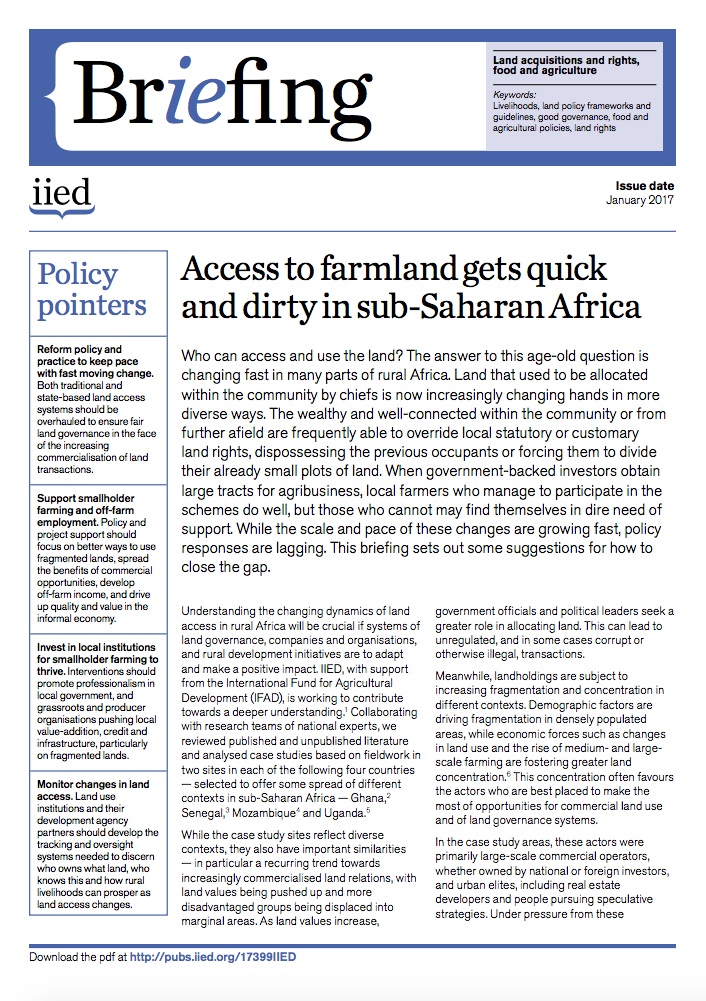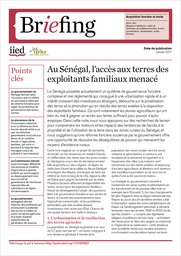Focal point
Location
Mission
Our mission is to build a fairer, more sustainable world, using evidence, action and influence in partnership with others.
Who we are
IIED is one of the world’s most influential international development and environment policy research organisations. Founded in 1971 by economist Barbara Ward, who forged the concept and cause of sustainable development, we work with partners on five continents. We build bridges between policy and practice, rich and poor communities, the government and private sector, and across diverse interest groups. We contribute to many international policy processes and frameworks, including the Intergovernmental Panel on Climate Change, the Millennium Ecosystem Assessment and the UN conventions on climate change and biological diversity.
What we do
IIED carries out research, advice and advocacy work. We carry out action research — generating robust evidence and know-how that is informed by a practical perspective acquired through hands-on research with grassroots partners — and we publish in journals and maintain high research standards. We advise government, business and development agencies, and we argue for changes in public policy. We focus on bottom-up solutions, stay open to flexible, adaptable solutions and are marked by a tradition of challenging conventional wisdom through original thinking.
Resources
Displaying 126 - 130 of 367Catching up with the fast pace of land access change in Uganda
The ways in which people obtain land in Uganda are changing fast. Land that used to be secured through inheritance, gifts or proof of long-term occupancy is now more commonly changing hands in the market. Those with wealth and powerful connections are frequently able to override local rules and gain access to land at the expense of poorer individuals. Government-backed agribusiness investors receive large areas of land with benefits for some local farmers who are able to participate in the schemes, while other smallholders see their land access and livelihoods degraded.
Access to farmland gets quick and dirty in sub-Saharan Africa
Who can access and use the land? The answer to this age-old question is changing fast in many parts of rural Africa. Land that used to be allocated within the community by chiefs is now increasingly changing hands in more diverse ways. The wealthy and well-connected within the community or from further afield are frequently able to override local statutory or customary land rights, dispossessing the previous occupants or forcing them to divide their already small plots of land.
Au Sénégal, l’accès aux terres des exploitants familiaux menacé
Pillars of the community: how trained volunteers defend land rights in Tanzania
Training volunteers to help their communities defend their land rights has proved an effective approach for promoting land justice in Tanzania. Report documents how Hakiardhi, a Dar-es-Salaam based research institute working on land governance issues, has established and trained a 600-strong network of male and female ‘Land Rights Monitors’ (LRMs) operating in 300 villages on various aspects of the land law, so they can help people and local governments to exercise and ensure respect for their legal rights in land disputes, particularly in relation to large-scale agricultural investments.
Mozambique’s REDD+: the challenge is scaling success
The Testing REDD+ in the Beira Landscape Corridor of Mozambique initiative closed in December. Over nearly four years, a consortium of public academic and research institutions, NGOs and social enterprises, supported by the Government of Norway, has explored what drives deforestation and forest degradation. The programme trialled four interventions: to expand conservation agriculture, to make logging more sustainable, to harvest and use biomass energy more efficiently, and to promote sustainable production of an important non-timber product. We now know what works.








